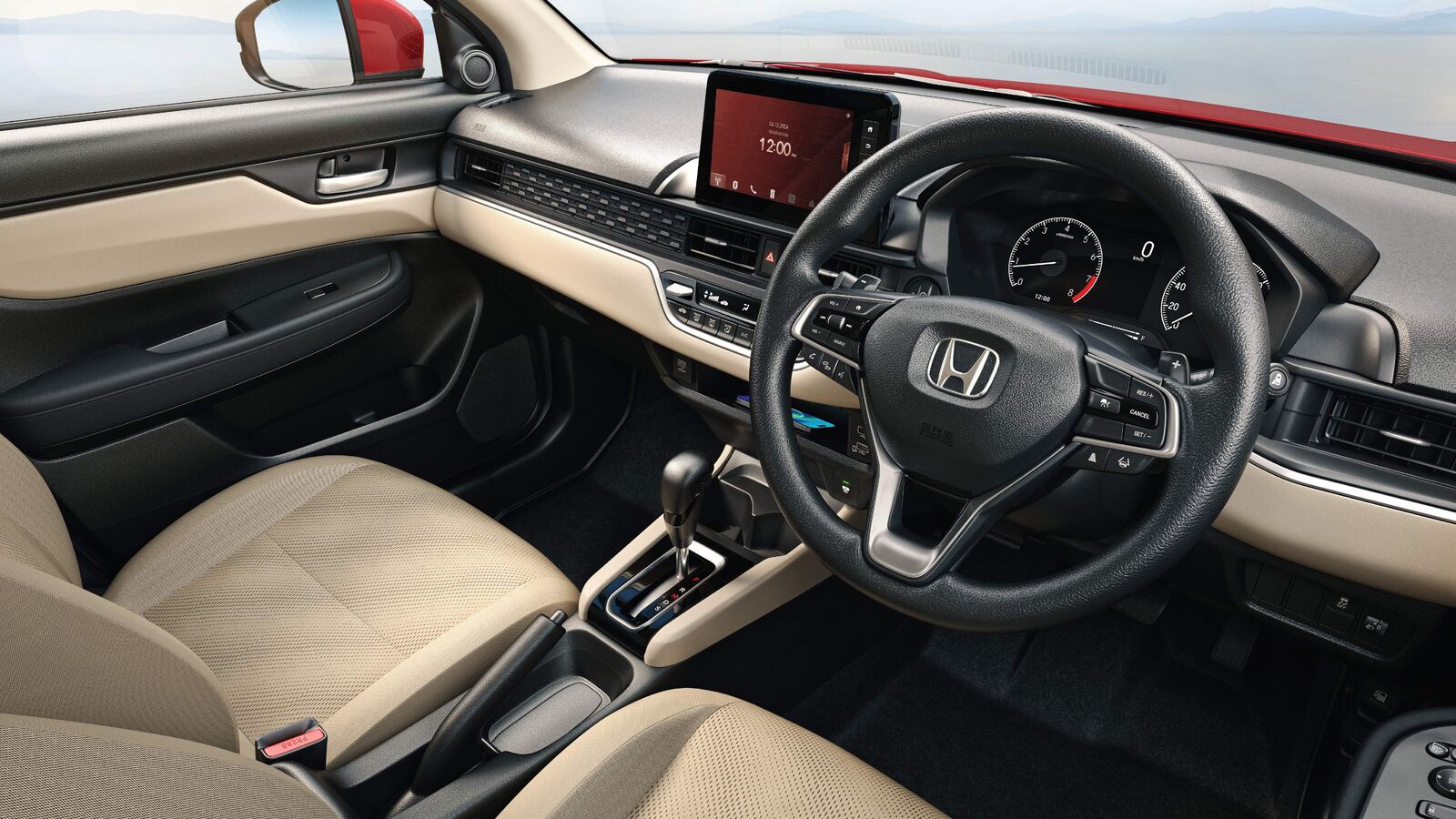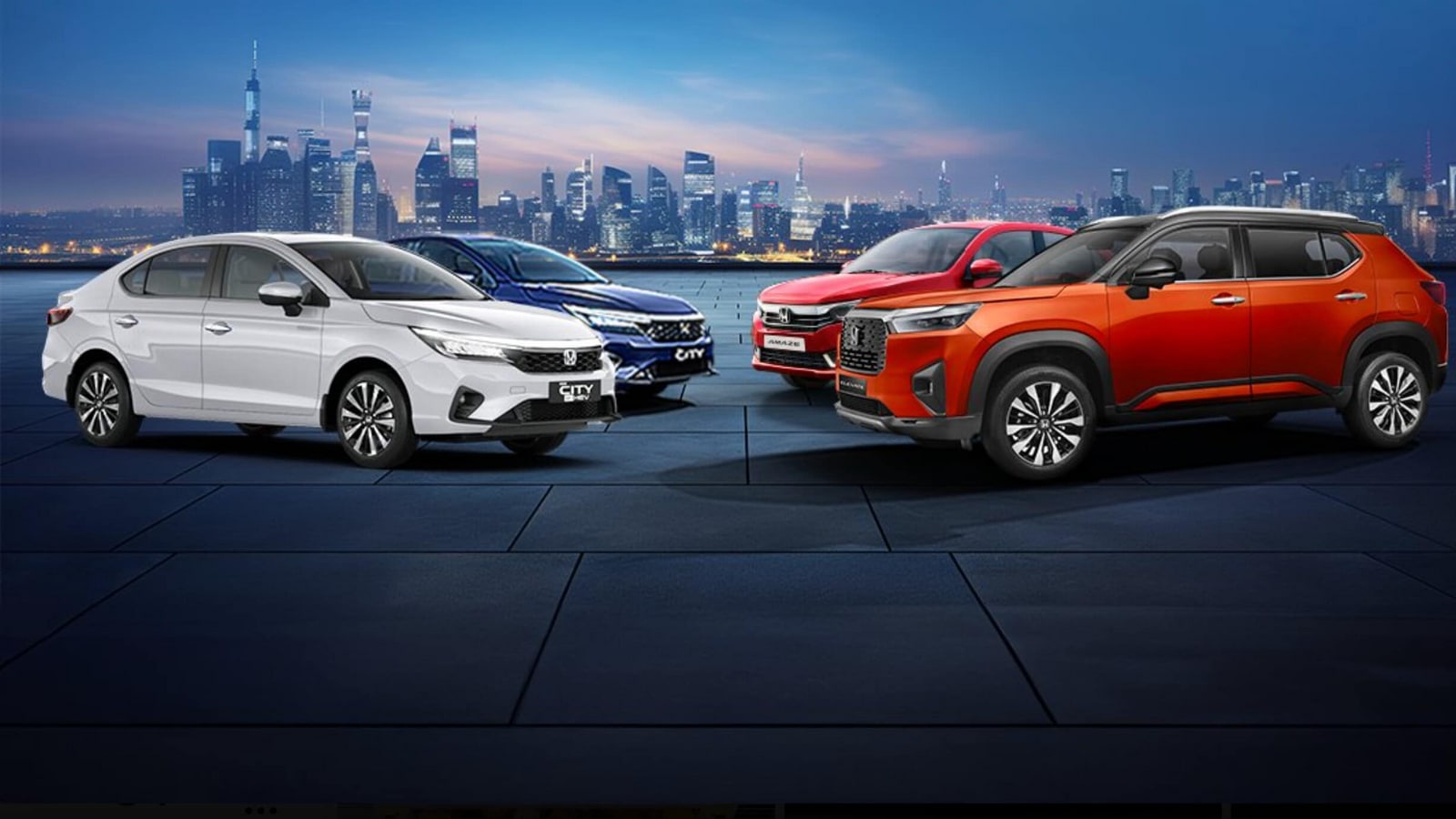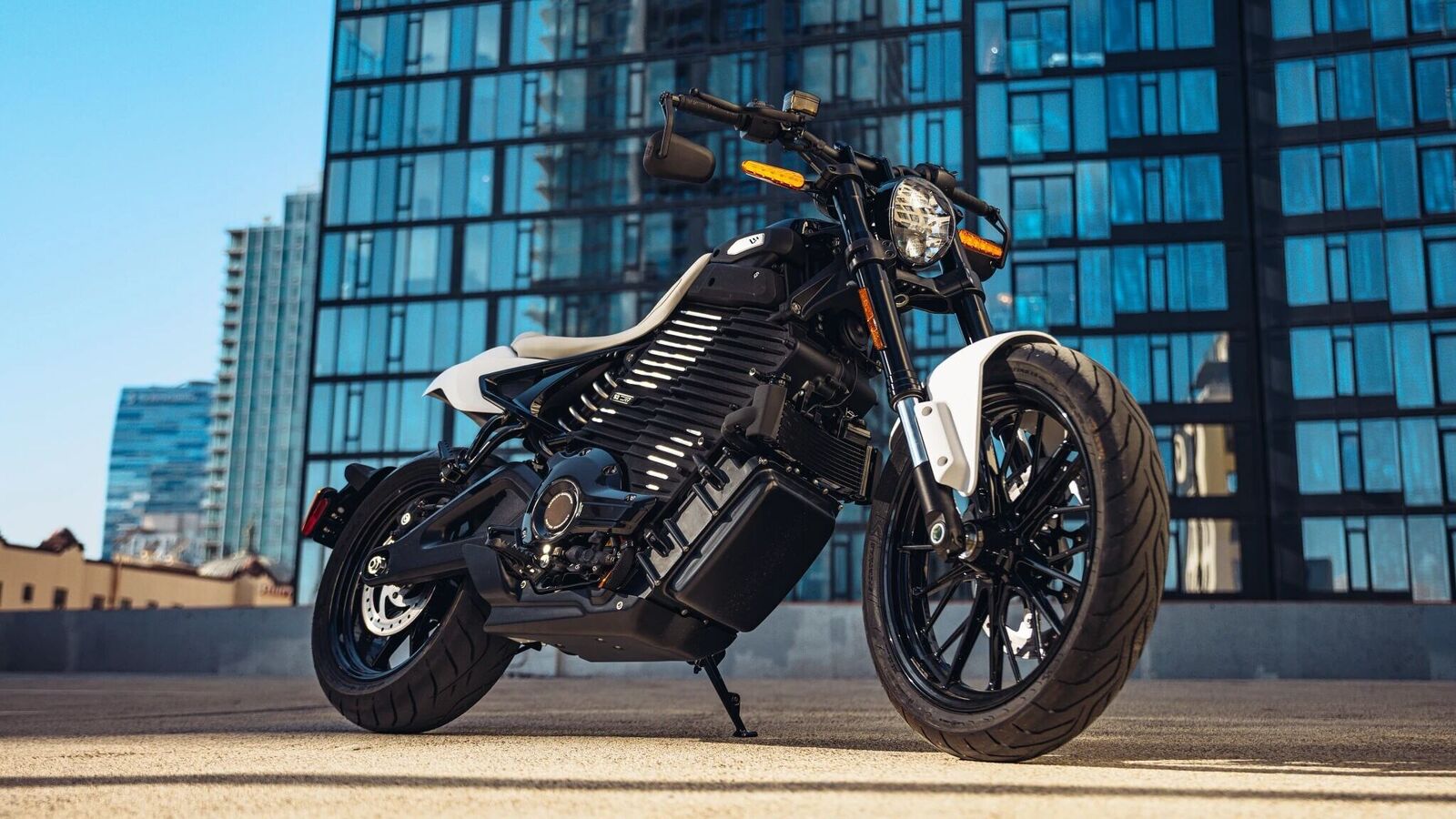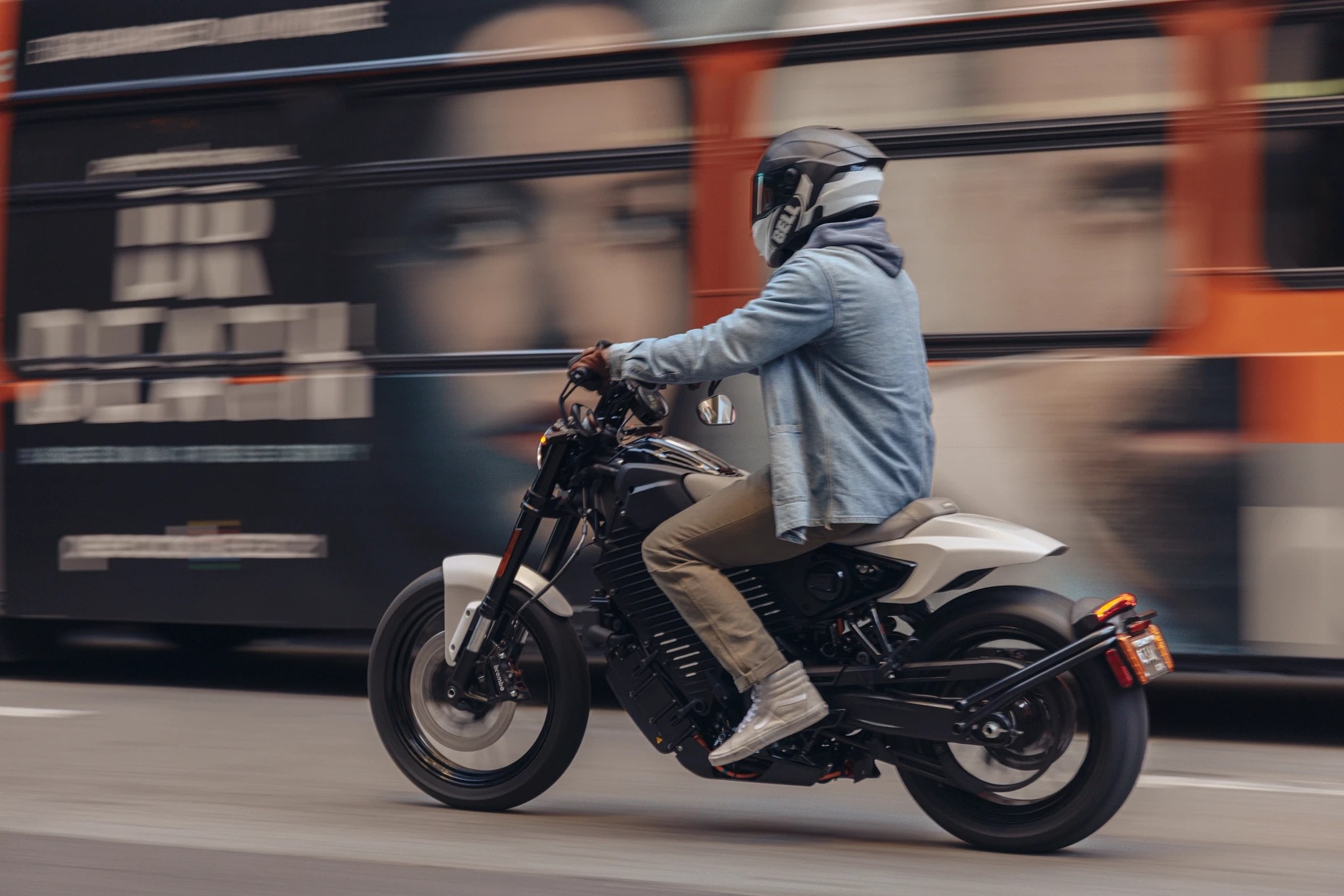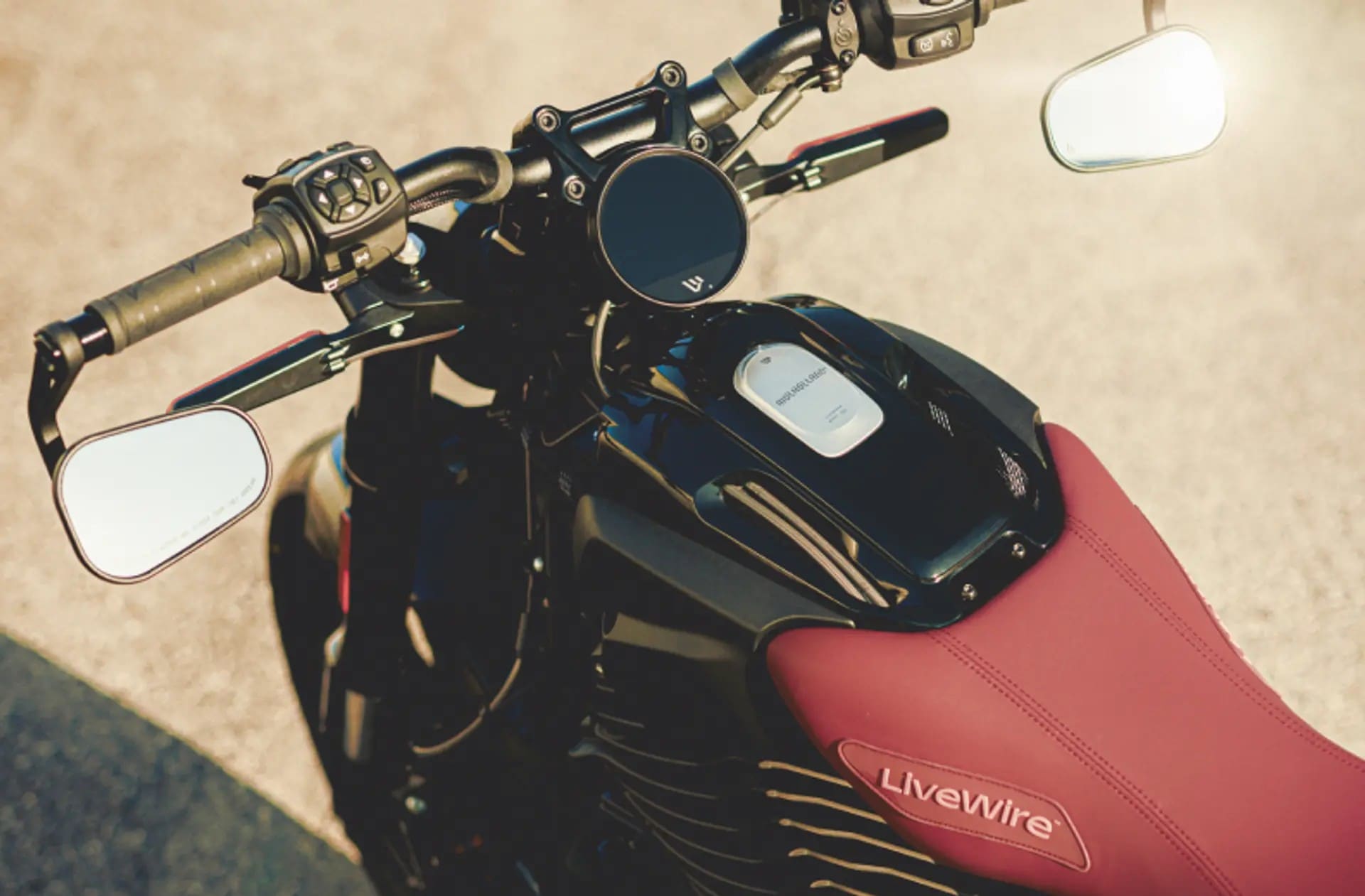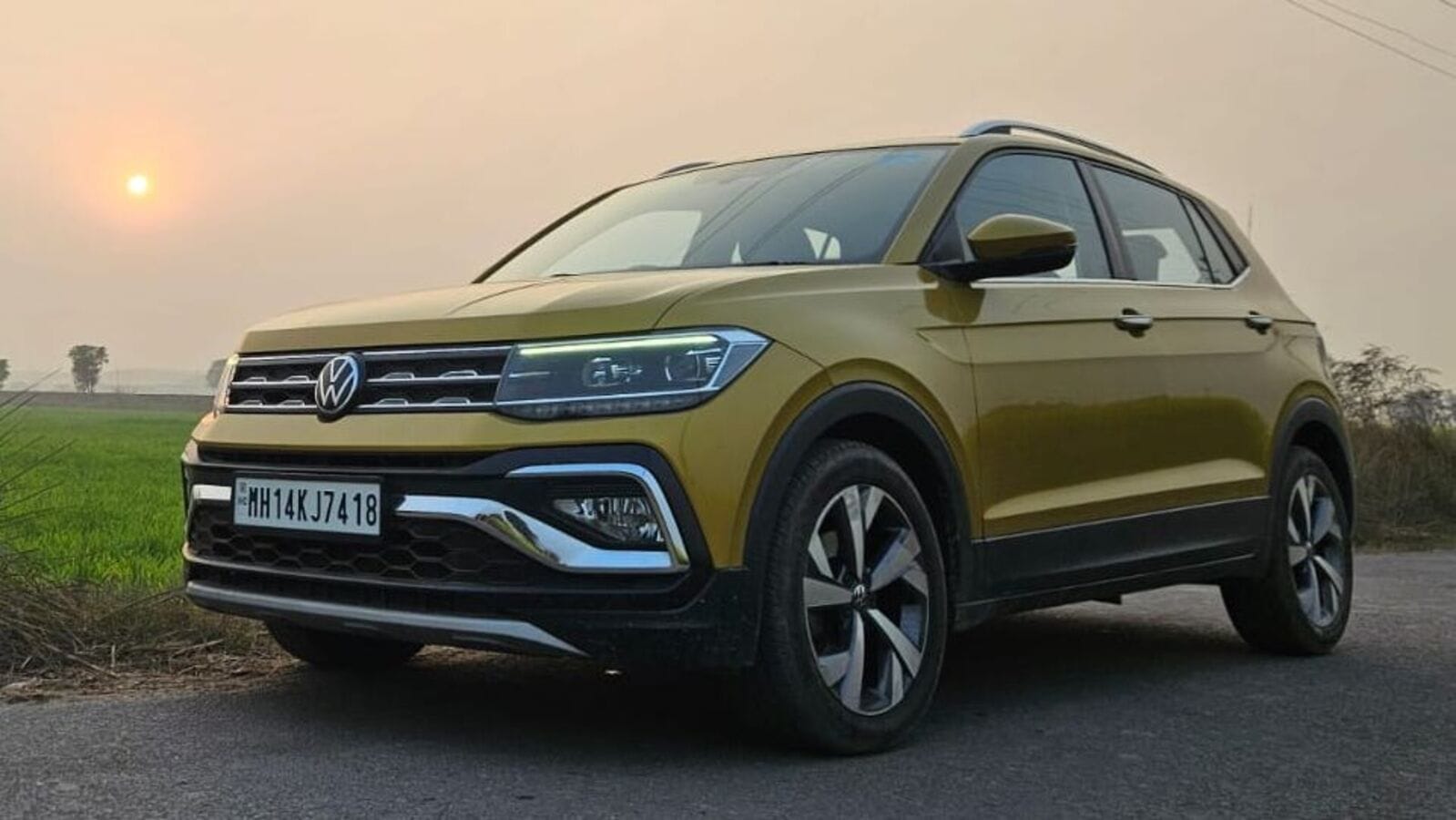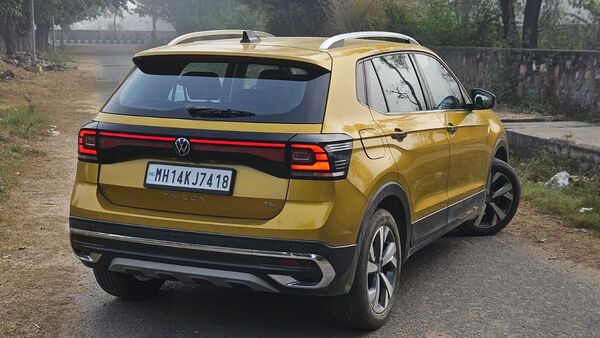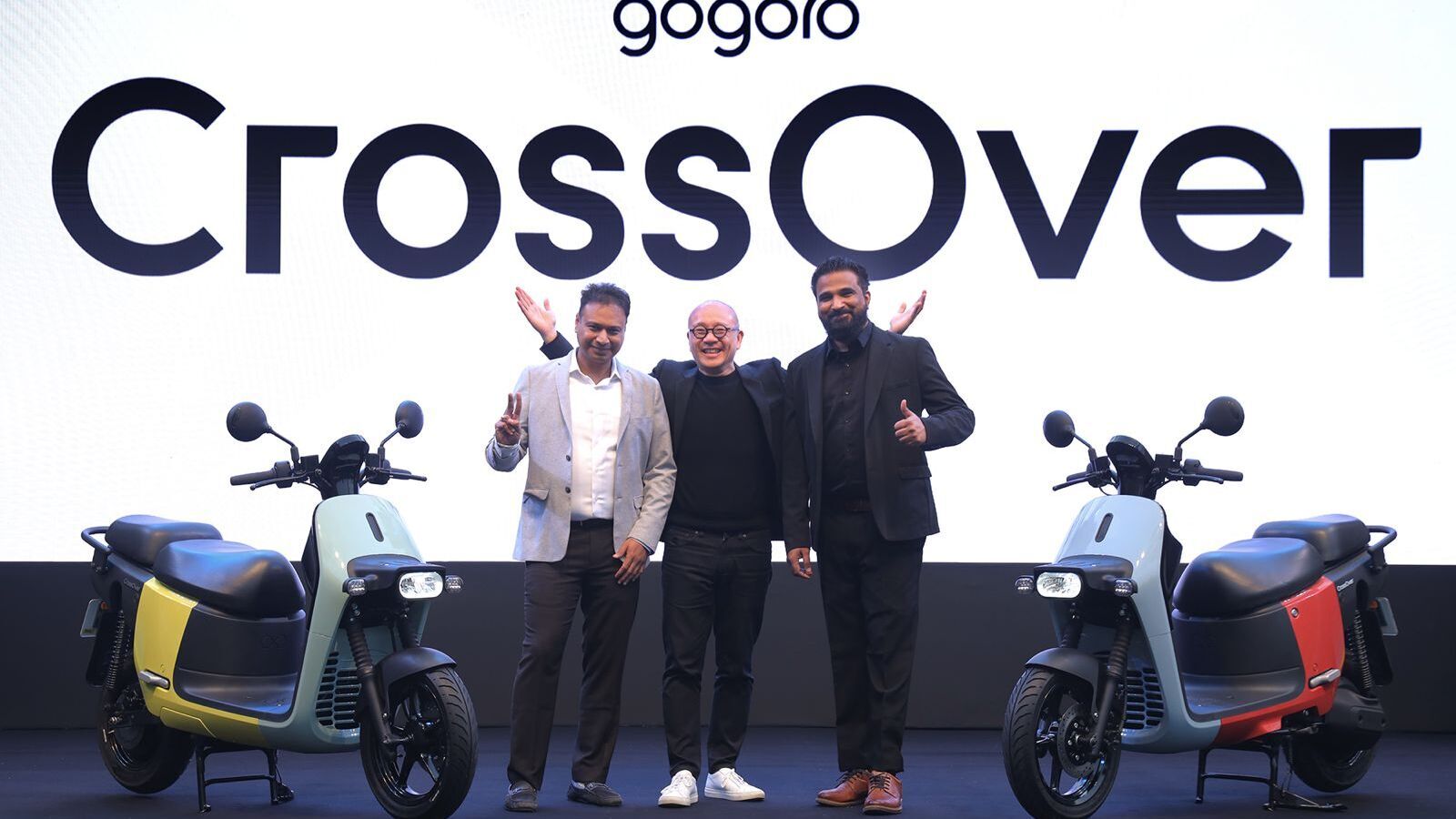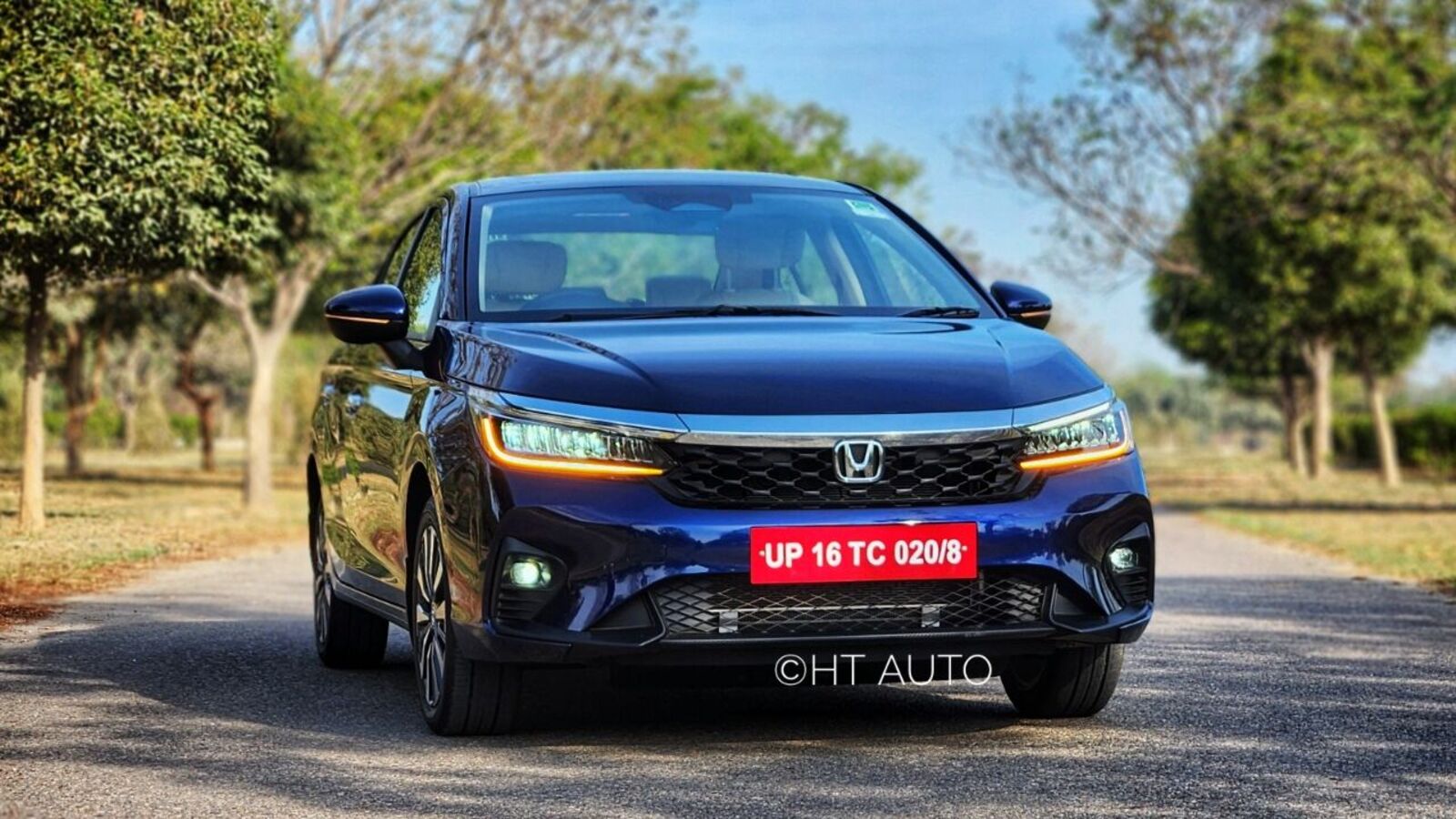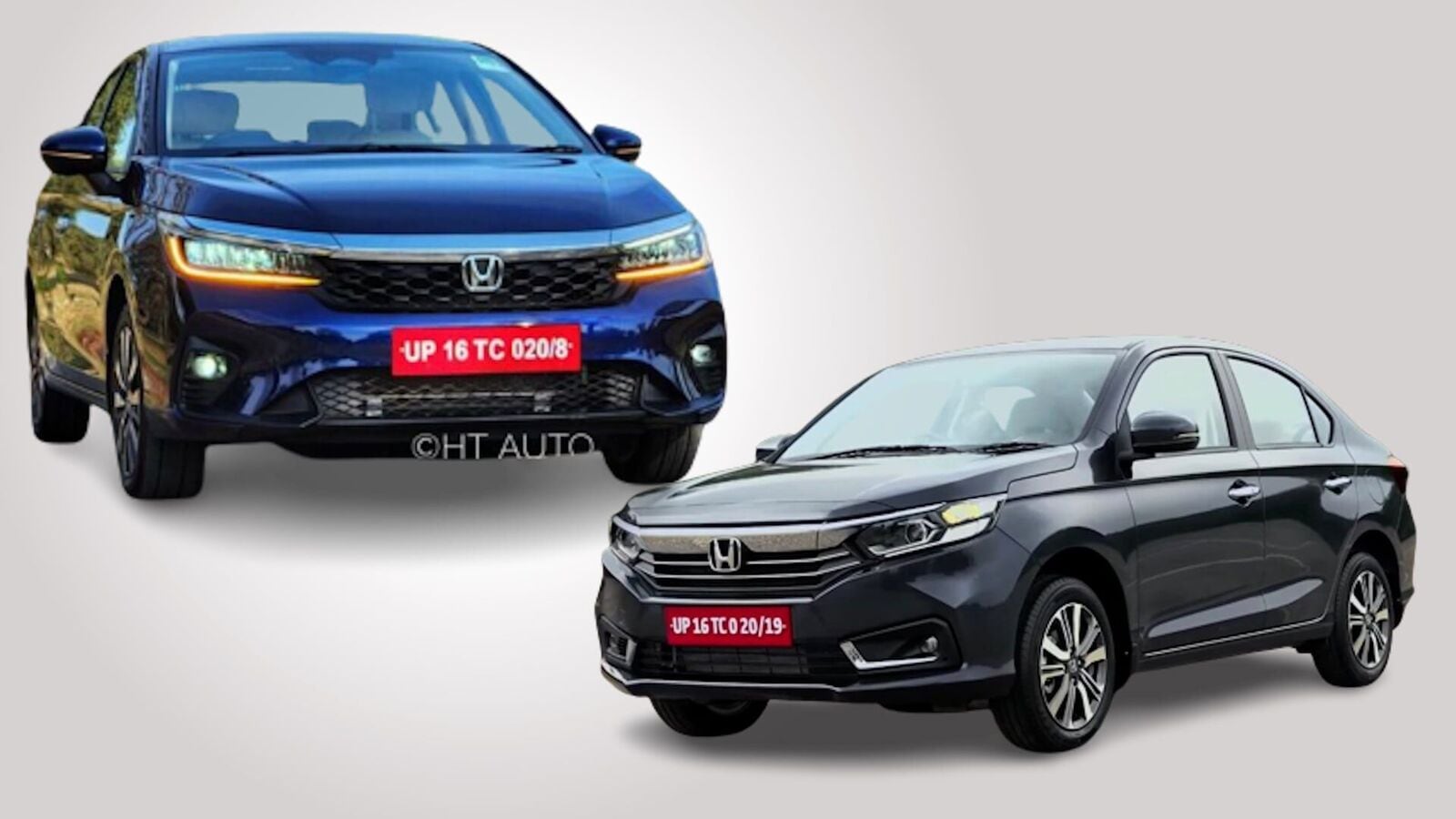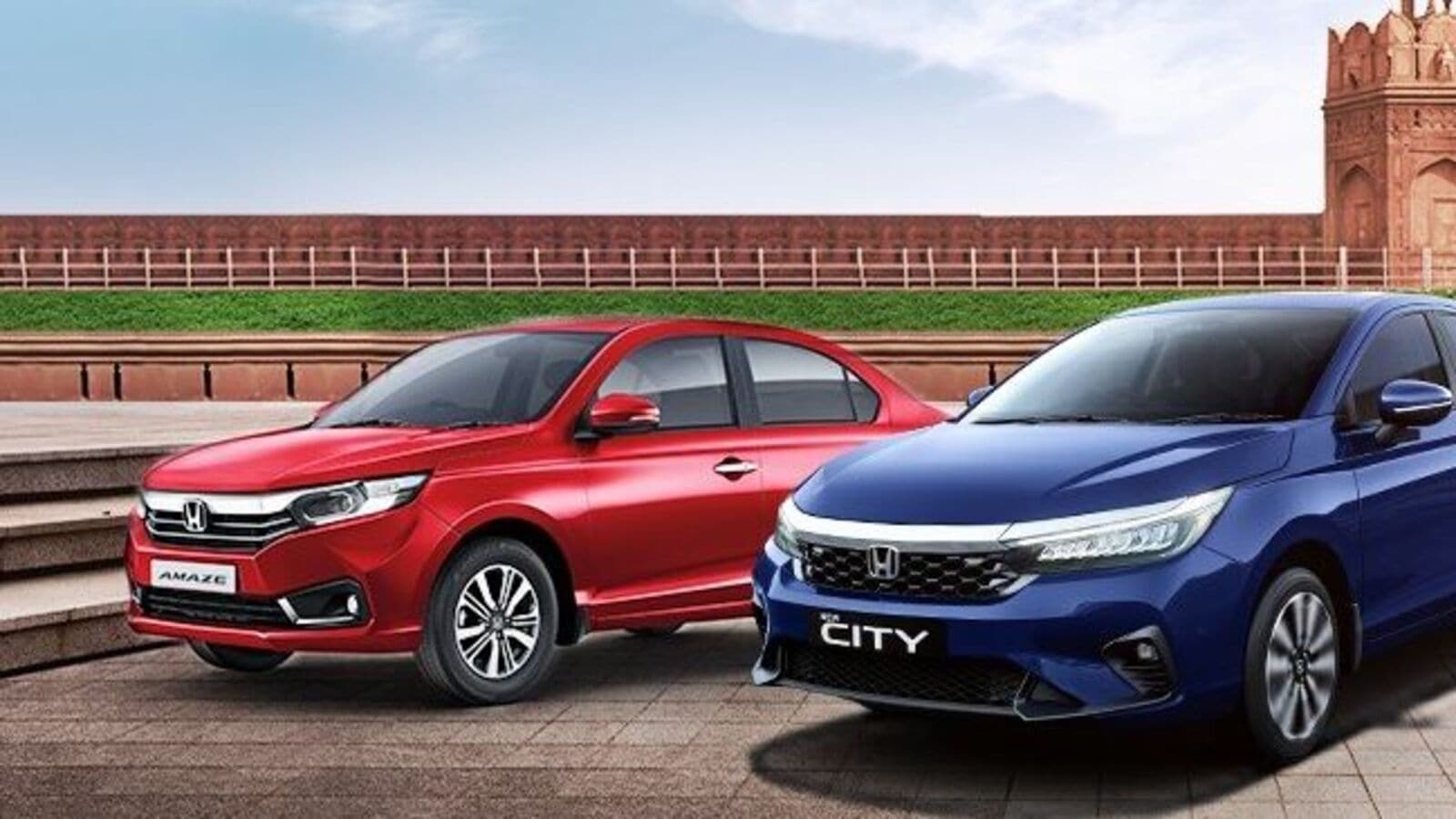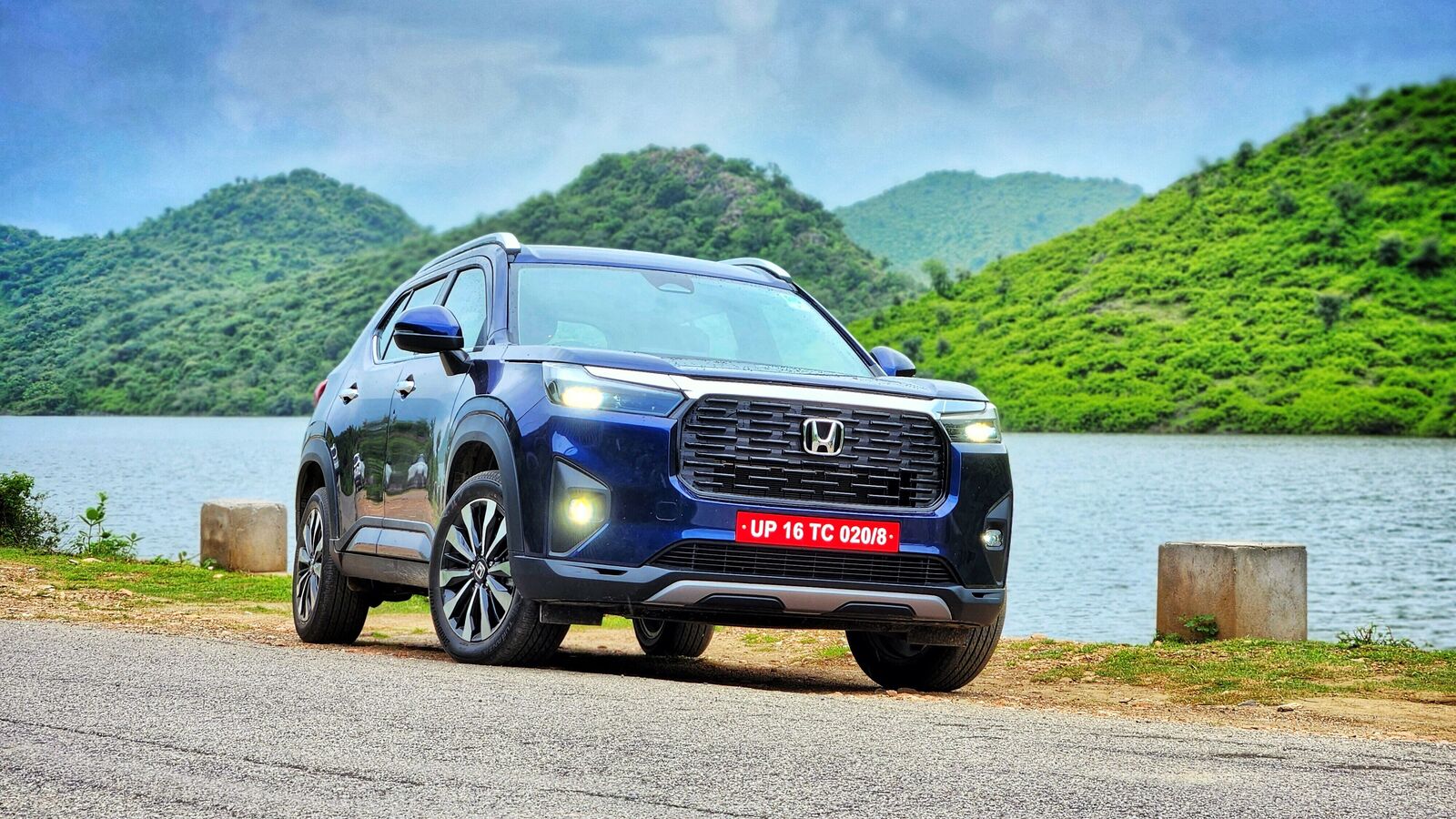- The newly launched third generation Honda Amaze shares many features with its sibling Honda City.
The sub-four meter compact sedan segment in the Indian passenger vehicle market has been witnessing declining sales numbers and declining market share over the past few years due to the steady rise in demand for SUVs and crossovers. However, despite consumers' declining interest in the segment, the sub-compact sedan segment suddenly became the talk of the town again with the launch of two new generation models. While Maruti Suzuki launched the fourth generation Maruti Suzuki Dezire, Honda Cars India launched the third generation Honda Amaze.
The new generation Honda Amaze has been completely redesigned with changes to the exterior and interior. The sedan now looks similar to its bigger sibling, the Honda City sedan. Apart from giving the new Amaze Ciy-influenced styling, Honda has also equipped it with a number of new features that give it an upmarket vibe.
Here's a quick look at the key features that the new generation Honda Amaze shares with the Honda City.
lanewatch camera
One of the key features of the new Honda Amaze is the LaneWatch camera, which is fitted below the left ORVM. This is the same LaneWatch camera unit that also comes in the Honda City. This camera provides a live feed when the indicator on the left is on. The camera and its feed are helpful when overtaking as they help the driver avoid potential blind spots.
ADAS
One major feature added to the new Amaze is the Advanced Driver Assistance System (ADAS). With this, Honda Amaze becomes the most affordable car in India and also the only car in the sub-compact sedan segment to offer this feature. The ADAS suite on the new Honda Amaze includes features like adaptive cruise control, lane-keep assist and collision mitigation system.
8.0-inch touchscreen infotainment system
Both the third-generation Honda Amaze and Honda City are offered with an 8.0-inch touchscreen infotainment system, which is compatible with wireless Apple CarPlay and Android Auto. The second generation Honda Amaze was equipped with a small 7.0-inch touchscreen infotainment system, but with the new generation model, the sedan gets a larger display.
7.0-inch semi-digital instrument cluster
The previous generation Honda Amaze had analog dials with a multi-info display in its instrument cluster. However, the new generation Honda Amaze gets a 7.0-inch semi-digital instrument cluster. This is the same unit that is also offered in the Honda City, which provides additional vehicle information along with customization.
wireless phone charger
The 2024 Honda Amaze gets a wireless phone charger, which, along with a USB port, provides additional convenience to the occupants. Both the Honda City and the new Honda Amaze have additional 12V power sockets in the front and rear seat rows.
Upcoming cars in India in 2024, check out the best SUVs in India.
First publication date: 11 December 2024, 10:49 am IST

